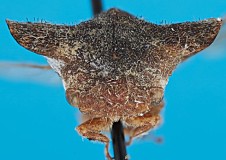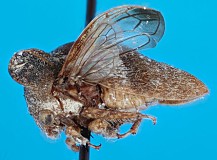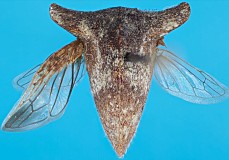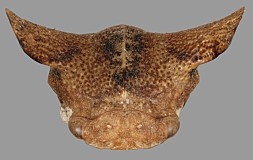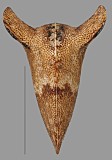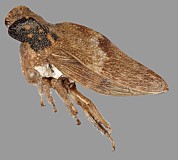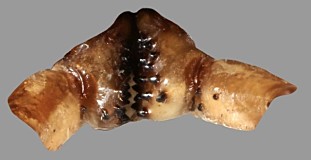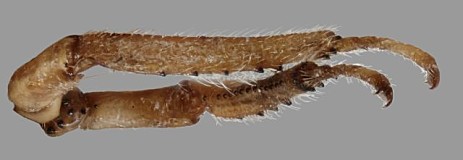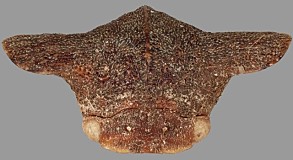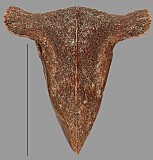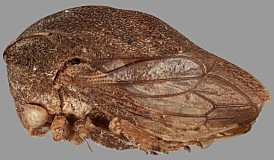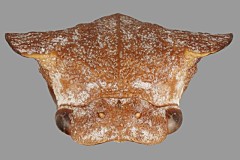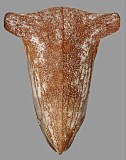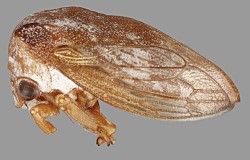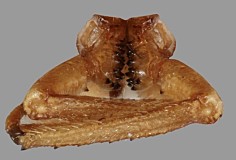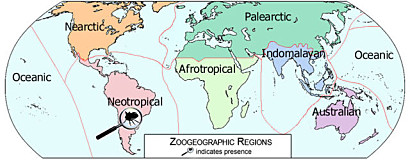Animalia → Arthropoda → Insecta → Pterygota → Hemiptera → Auchenorrhyncha → Cicadomorpha → Membracoidea → Membracidae → Darninae → Darnini
Polyodontotrochus González-Mozo and McKamey, 2024
Selected references
González-Mozo and McKamey 2024a
Overview
González-Mozo and McKamey (2024a) created the new genus Polyodonotrochus to include four new species of the tribe Darnini: P. elevatus (type species: from Ecuador), P. auriculatus and extentapalaestrus (both from French Guiana), and P. inpa (from Brazil). These new taxa were described and illustrated along with a key to the species. Females of the new genus are unknown. In males, however, the inner surfaces of the metathoracic trochanters are flattened and bear numerous studlike, sclerotized dentae, unlike the trochanters of all other treehopper genera previously observed.
Taxon images
Polyodonotrochus
1.
Polyodontotrochus auriculatus, holo...
↴
2.
Polyodontotrochus auriculatus, hol...
↴
3.
Polyodontotrochus auriculatus, holot...
↴
4.
Polyodontotrochus elevatus, holotype, ant...
↴
5.
Polyodontotroch...
↴
6.
Polyodontotrochus elevatus,...
↴
7.
Polyodontotrochus elevatus, hin...
↴
8.
Polyodontotrochus elevatus, hin...
↴
9.
Polyodontotrochus extentapalaes...
↴
10.
Polyodontotrochus exte...
↴
11.
Polyodontotrochus extentapalaes...
↴
12.
Polyodontotrochus inpa, holotype, ante...
↴
13.
Polyodontotrochus...
↴
14.
Polyodontotrochus inpa, holotype, latera...
↴
Distribution
Diagnostic characters
Members of the genus Polyodonotrochus differ from other Darnini in the following features: the suprahumeral horns of the pronotum are punctate and project laterally; also the inner surfaces of the metathoracic trochanters are flattened and bear numerous studlike, sclerotized dentae. (González-Mozo and McKamey 2024a).
Ecology
Although the ecology of the genus Polyodonotrochus is unknown, the few individuals collected to date were from elevations between 58 and 410 m. altitude (González-Mozo and McKamey 2024a).
Host plants
The host plants of the genus Polyodonotrochus are unknown (González-Mozo and McKamey 2024a).
Behavior
Although nothing is know of the behavior of the genus Polyodonotrochus, in general members of the tribe Darnini are found as solitary nymphs or adults and are neither subsocial nor ant-attended (González-Mozo and McKamey 2024a).
Prepared by
Lewis L. Deitz and Stuart H. McKamey, 29 February 2024


